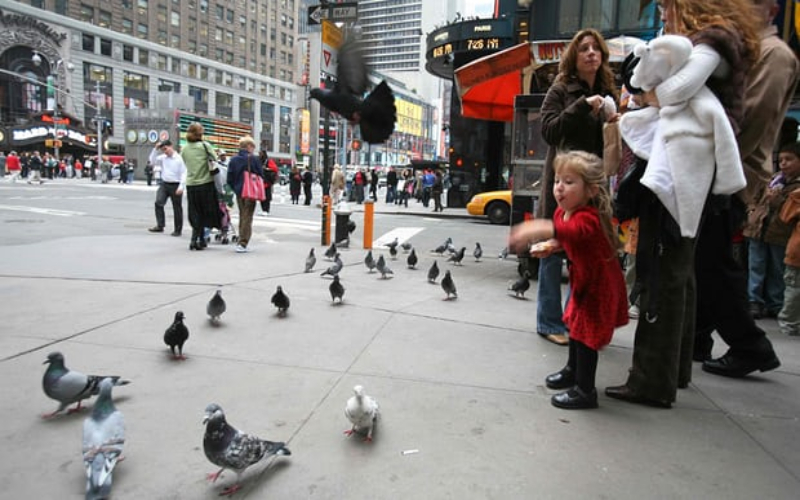11 Dec 2024

Tired Earth
By The Editorial Board

Pigeons might be seen as the scourge of cities, but researchers say they could help us explore both the levels and impacts of a host of toxins in the air, from lead to pesticides.
Scientists say feral pigeons are a valuable way of probing contaminants in environment, since they are exposed to the same air, water, food and other factors as humans, and don’t venture far from home.
“Because they are alive they process these chemicals in their bodies. This offers up the opportunity to not only find toxin hot spots in our environment, but to understand how these toxins affect biology,” said Dr Rebecca Calisi of the University of California, Davis, who is presenting research on the topic at the meeting of the American Association for the Advancement of Science.
Previous work by Calisi and her team looking at blood lead levels from 825 unwell pigeons across the New York City borough of Manhattan, collected between 2010 and 2015, suggested that pigeons are a useful bioindicator of lead levels. The study showed that blood levels of lead in the birds were higher during the summer – an effect that has also been noted in children. The team also found that levels of lead in the pigeons’ blood were linked to the rate of children with raised blood lead levels in the same part of the borough.
Calisi isn’t alone in turning to our feathered friends for insights. Researchers in Amsterdam have shown blood lead levels in pigeons are linked to the heaviness of traffic, while scientists in Brazil have shown that pigeons in a big city have higher levels of lead, chromium and cadmium in their feathers than those from a less developed city.
Now Calisi and colleagues say they have taken a step towards being able to probe the impacts of such toxins. In research soon to be published in the Journal of Hormones and Behaviour, the team describe how they developed approaches to unpick how stress affects the production of substances such as proteins from genes in the parts of the body and brain involved in reproduction in pigeons. “We now want to use this information to investigate how toxins like lead and other pollutants affect organisms at the level of the genome,” said Calisi.
Indeed the team believe pigeons could be used to examine both the levels and impact of a host of noxious substances. “Our plan moving forward is to screen pigeons not only only lead but for other toxins as well, from pesticides to fire retardants, to BPA and other heavy metals,” she said.
Research in white-tailed eagles has already shown that levels of flame retardants in feathers mirrors concentrations in the atmosphere, while studies have suggested that toxins in the air could affect a host of biological processes in birds, from growth rates to circulating testosterone levels and even mating behaviour.
And while pigeons might seem like a surprising tool for shedding light on possible implications of toxins for human health, Calisi says we are not so very different. “Birds, like us, are vertebrates. We share a lot of the same evolutionary history, and our bodies have many similarities in terms of tissue form and function,” she said, adding that, like humans, pigeons lactate and that the process is governed by the same hormones. “So as you see, what we learn in birds can have far-reaching implications.”
Source : www.theguardian.com
Comment